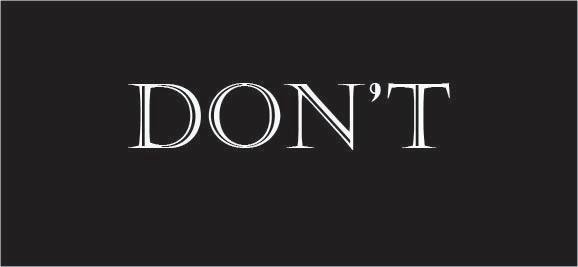|
When I first started in my first role out of college, multitasking was not just the norm, but the expectation. I recall getting training on a few things that I'd be doing. One task involved pulling data from a few different reports that we generated and then using that information in a handful of spreadsheets that then got put into another report. All well and good. But while the reports were being generated for that task, we switched focus to another task. As soon as a report popped open, we'd switch back to the first task. Back and forth. Add in a few other tasks during all this and hopefully you get the picture. The ability to multitask in this way was worn like a badge of honor by many people. The expectation was that everyone have the ability to switch from one thing to another to another constantly. Emails to tasks to phone calls to reports etc. Of course, I noticed this and tried my best to follow suit. After all, I was a smart individual and knew I could keep up with the best of them. Fortunately for me, I realized quickly how terrible this was. I marveled that everyone else wasn't making loads of mistakes working this way. Until I realized they were. And I was too. Any time I might have gained by switching back and forth so as to not waste a second, cost me more time going back through all my work to check for mistakes. It was a real waste. Research There has been plenty written recently about how multitasking in this fashion. Rather than gain efficiency, we actually lose it and increase risks. In the case of work, it means making mistakes on what we're doing. When it comes to something like driving and texting, the risks are even higher. The American Psychological Association has some great studies about the costs of trying to multitask and our inability to do it. There is even a great little experiment that shows how poor we really are when it comes to multitasking. Try writing a sentence and then a sequence of numbers. Now try writing one letter and switching to a number and see how well you do. Not well, I'm sure. What to Do I have the feeling that many of know this to a large degree. We know multitasking is bad. Driving and texting, Facebook and meetings, etc. But we still fall victim to it at work. At least I did, until I actively decided to kill multitasking. Here are a few of the things I did early on and try to do still. Leave the Email The main culprit I noticed early on was email. I know that not places are the same, and some organizations abuse email more than others. It wouldn't be unusual for me to receive an email or two every minute. Some requiring my attention, others not. But to stop to check email every time I received one was the biggest productivity killer there could be. So I stopped. I'd allow emails to wait until I was at a point I could shift my focus for a minute. No more being a slave to my inbox. Set Expectations This led me directly to setting expectations with everyone I worked with. I wanted to make sure they knew I'd get back to them, but not to ever expect immediate replies or answers. This took a little bit of time, but with good communication and follow-up, it works wonders. All of my colleagues knew they could depend on me to get back to them, but that I wasn't living in my inbox and may take a few minutes. Once the expectations were set, life became a lot better. Prioritize Clearly set what your priorities are going to be. What is the most important? The most urgent? What can be knocked out quickly and what might take some more time? Once you've established priorities, it's time to focus. Focus on One Task Forget about jumping back and forth between things. Focus on one thing and do it well. Even if there is a little down time in that task, like there was for me when I was generating reports, it costs much more to try and switch back and forth between tasks. By staying focused on the current task, I didn't have to try and remember where I was and what I needed to do. I saved the mental cost and mitigated the risk for me. It's impossible to multitask like we commonly think about. This doesn't mean you can't balance multiple things going on at the same time (which is the life of a product manager), but it does mean not allowing yourself to get pulled from one thing to another every few minutes. Focus on priorities and work until you get to a place where you can effectively switch tasks without losing efficiency. When it comes to multitasking, just don't.
0 Comments
|
AuthorMy personal musings on a variety of topics. Categories
All
Archives
January 2023
|


 RSS Feed
RSS Feed
